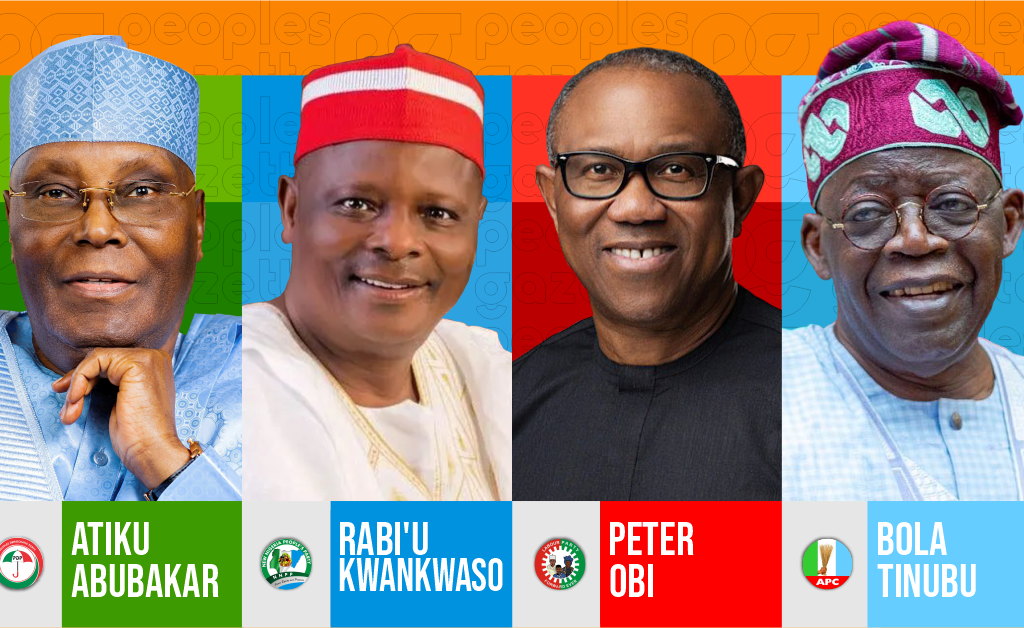
European Union listed Atiku Abubakar of the Peoples Democratic Party, Peter Obi of the Labour Party, Rabiu Kwankwaso of New Nigerian People’s Party and Bola Tinubu of the All Progressives Congress as the four leading presidential candidates in the 2023 election with suspicious followers on social media “used to create a false impression of support.”
The EU, in its final report, ‘Election Observation Mission Nigeria 2023’, said of sampled Twitter accounts, Mr Kwankwaso had 80 per cent dubious followers, Mr Atiku had 60 per cent suspicious followers, and Mr Obi had 23 per cent suspicious followers. Mr Tinubu had the least number of such followers, with 22 per cent.
“There was a steady increase in the number of followers of key presidential candidates over a period of three months (January – March). During the week of the presidential election, there was a sharp increase in the number of followers for all four candidates,” the final EU observers’ report on Nigeria’s 2023 presidential poll stated.
It added, “It should be noted that a relatively large number of these new followers are suspicious accounts, used to create a false impression of support.”
Explaining its sample size and methodology for arriving at its conclusion, the EU said, “The sample, 3,000 Twitter followers of each of the four major presidential candidates, was verified using the Botometer and Bot sentiel tools, as well as via manual verification. In the process, the EU EOM found that suspicious accounts accounted for 80 per cent of the sample of 3,000 new Kwankwaso’s followers, 60 per cent of the sample of 3,000 Atiku’s followers, 29 per cent of Obi followers and 22 per cent of the sample of 3,000 Tinubu’s followers.”
According to the EU, accounts could not be identified as suspicious at first glance because they had an original-looking profile name or used a random snippet of a photo used online as a profile picture that could not be directly identified as having already been used (using Google’s reverse image search). But the report noted that deeper investigation revealed problematic aspects, which were anonymity or high engagement and endorsement of particular people, topics and hashtags.
In recent elections, Nigerian politicians had deployed social media for massive campaigns and youth mobilisation.
The EU report also debunked claims that the 2023 general elections were free, fair and credible, lamenting the killing of 74 people during the poll, berating Nigerian police for attacking journalists while ignoring political thugs disrupting the process.


